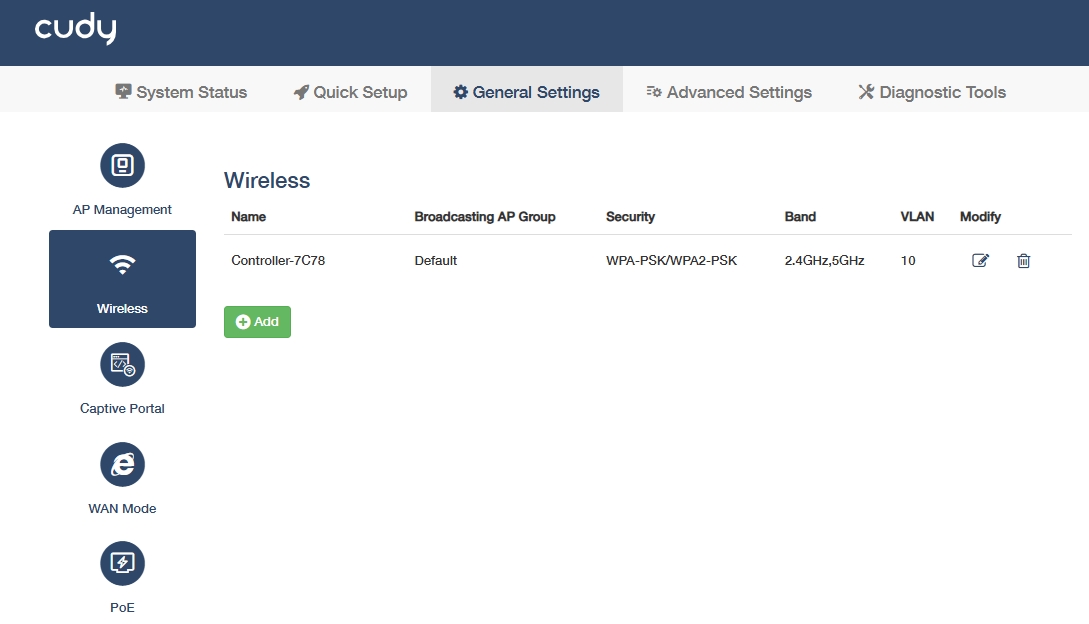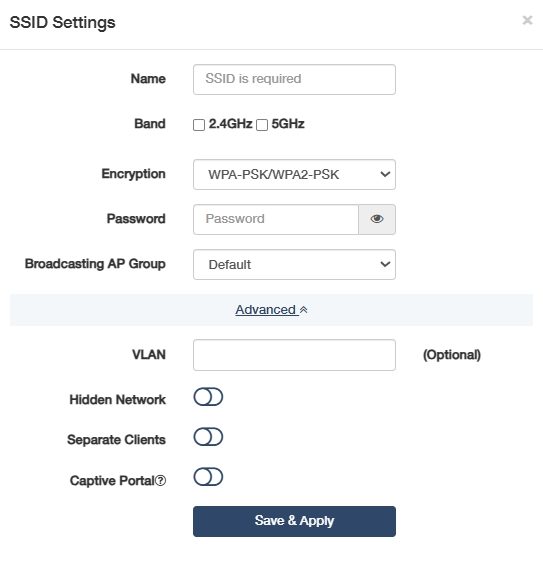Wireless¶
To configure and manage wireless network settings for the controlled APs.
-
Name: Displays the wireless network name (SSID) visible to wireless clients.
 APs in the same AP group will share an identical SSID, while different AP groups should have different SSIDs.
APs in the same AP group will share an identical SSID, while different AP groups should have different SSIDs. -
Broadcasting AP Group: Displays the AP Group of access points sharing this wireless configuration.
- Security: Displays the encryption and authentication methods for network protection.
- Band: Displays the frequency range used for wireless transmission.
- VLAN: Displays this AP group's VLAN ID for traffic segregation. Wireless client data frames are encapsulated with the configured 802.1Q VLAN tag upon egress from the AP's LAN interface.
-
 : Click to add a new entry for an AP group's wireless configuration.
: Click to add a new entry for an AP group's wireless configuration.- Name: Modify or customize the wireless network name.
- Band: Tick or untick 2.4GHz/5GHz to specify the frequency range.
- Encryption: Select a security protocol to prevent unauthorized access.
- WPA-PSK: Legacy TKIP encryption, vulnerable to attacks, deprecated.
- WPA2-PSK: AES-based standard, secure but susceptible to brute-force.
- WPA-PSK/WPA2-PSK: Mixed mode for backward compatibility, weakest link dictates security.
- WPA2-PSK/WPA3-SAE: Transitional mode, AES+SAE for future-proofing.
- WPA3-SAE: Quantum-resistant, SAE protocol, ideal for critical infrastructure.
- Password: Set a password for the wireless network.
- Broadcasting AP Group: Select an AP Group for the access points.
- VLAN: (Optional) Assign a VLAN ID (10-4094) to this AP group/SSID to enable traffic segregation. Then ensure the connected switch port is configured as an 802.1Q trunk with the corresponding VLAN allowed.
- Hidden Network: Enable to avoid SSID broadcast and hide the network from casual scans but offers minimal security. Use only with WPA3 for industrial IoT.
- Separate Clients: Enable to isolate connected devices and block their communication, critical for IoT security in shared networks.
- Captive Portal: Enable a login/authentication gateway to control access. It is editable only when General Settings -> Captive Portal is enabled.



